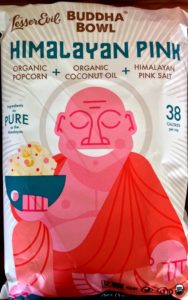Over the past several decades, those who view religion with respect regularly come back to the same question: What has happened to the religious intellectuals, the thinkers taken seriously by nonbelievers as well as believers?
You younger folks may be giggling at the very idea of religious intellectuals, but really, there are such people. And they used to make appearances in public, including getting on Time magazine covers back when that was a bigger deal than it is now. In the mid 20th century, people like W.H. Auden, T.S. Eliot, Mortimer Adler, J. H. Oldham, C. S. Lewis and Reinhold Niebuhr were leading spokespersons for Christianity. They were published in newspapers and magazines and frequently spoke on the radio. And their commentaries often spoke to political and social issues of the time. Although these men didn’t see eye to eye in all particulars, on the whole they held a liberal view of humanity and presented a Christianity that spoke to the better angels of our nature.
This was before television, however, which makes one wonder if television is part of the problem. The people who speak for Christianity on the teevee these days are uniformly hateful and imbecilic, and chained to right-wing ideology.
 If you knew nothing at all about the Gospels except what you heard on cable television, you might assume that the ministry of Jesus was primarily about stopping abortion and homosexuality. And in fact, Jesus addressed neither topic even in passing. Further, most of the Christian voices you hear in mass media these days speak of nothing but hate, or worse, how they are entitled to discriminate against women and gays and Muslims and anyone else they don’t like because they’re Christian. How did that happen?
If you knew nothing at all about the Gospels except what you heard on cable television, you might assume that the ministry of Jesus was primarily about stopping abortion and homosexuality. And in fact, Jesus addressed neither topic even in passing. Further, most of the Christian voices you hear in mass media these days speak of nothing but hate, or worse, how they are entitled to discriminate against women and gays and Muslims and anyone else they don’t like because they’re Christian. How did that happen?
Writing in the current issue of Harper’s (“The Watchmen: What became of the Christian intellectuals?“), Alan Jacobs traces what happened to Christianity in public discourse from 1950 on. First, the generation of Auden, Eliot et al. either died or retired, and they were replaced by intellectuals speaking for science and technology rather than Christianity. Second, in the Cold War/Red Scare age, anti-intellectualism was on the rise. “As anti-intellectualism took a greater hold over American life in general, and over Christian life in America in particular, it came to seem almost unnatural for a congregational minister also to be a deeply learned person, an intellectual with an intellectual’s voice,” Jacobs writes.
This is not to say there were no intelligent spokespeople for Christianity after the 1950s — there was Martin Luther King, after all — but as time went on they were more and more drawn into speaking for conservatism. For example, Father Richard John Neuhaus was once a prominent Catholic spokesperson for civil rights in the 1960s, but then he got sucked into the anti-abortion movement.
Jacobs claims that Christian intellectuals somehow became persona non grata in “liberal” media in the 1960s and 1970s, but he doesn’t explain how that happened. I suspect that a reason for that was that liberal Christian intellectuals tended to be against the Vietnam War at a time when antiwar statements were considered unpatriotic and controversial, never mind that most Americans were against the war.
The bigger part of the story that Jacobs misses has to do with television, and how political operatives learned to manipulate it. Let’s go back to the school desegregation fight of the 1950s and 1960s.
One of the critics of school desegregation was a young Southern Baptist minister from Lynchburg, Virginia, named Jerry Falwell. The Rev. Falwell publicly denounced the Rev. Dr. Martin Luther King and worked with J. Edgar Hoover to spread FBI-manufactured propaganda against him. The Rev. Falwell’s sermon’s included lines like “The facilities should be separate. When God has drawn a line of distinction, we should not attempt to cross that line”; and “The true Negro does not want integration,” as if the Rev. Falwell had a clue what the “true Negro” might want.
The Rev. Falwell went on to found the Lynchburg Christian Academy, advertised as a “private school for white students,” in 1966. A few years later, the name changed to Liberty Christian Academy. Meanwhile, the Rev. Falwell’s church grew to megachurch proportions. In later years he came be associated with his opposition to legal abortion and gay rights, but it was his opposition to desegregation that grew his original following.
After the Roe v. Wade decision in 1973, conservative political operative Paul Weyrich, who founded the Heritage Foundation and the American Legislative Exchange Council (ALEC), tried to enlist Falwell in the anti-abortion and anti-women’s rights campaigns. At first Falwell wasn’t interested, but eventually he was won over. It has been suggested that Falwell didn’t extend his “ministry” to oppressing women and gays until he was persuaded that the cause of segregation was utterly lost, and he needed a new cause to keep his career going.
Thus began the next phase of his public career, and you might remember that for a time the Rev. Jerry Falwell was a real force in U.S. politics. Promoted and supported by the political Right, the Rev. Falwell became one of mass media’s go-to “experts” on religious and moral questions. (See “Agent of Intolerance” by Max Blumenthal.)
In other words, the so-called “liberal” media that allegedly shut out liberal Christian voices was more than happy to give the likes of Falwell a megaphone. I suspect what happened is that people like Weyrich did a bang-up job of seeing to it that Falwell and his fellow travelers were well represented in the rolodexes of television producers. By the time we got to the awful Terri Schiavo episode in 2005, Christianity was entirely represented on television by the most reactionary, politicized extremists of the so-called Christian Right. I wrote about this in my book, Rethinking Religion.
Television producers booked one right-wing religious figure after another, all taking the side of Terri Schiavo’s parents, as if “religion” spoke with one voice on this issue. As I remember it, the “debate” on MSNBC featured a grid of fundamentalist ministers — plus Pat Boone, for some reason — arranged on the screen like a tic-tac-toe board. And the talking heads were all bearing false witness against Michael Schiavo as fast as they could move their lips. It was surreal.
Yes, I’m sure Fox News was even worse, but I didn’t have the stomach to watch.
But religion does not speak with one voice on this issue. Ministers, rabbis, theologians, etc., could have argued on well-founded religious grounds that removing the feeding tube was the moral thing to do, under the circumstances. And, in fact, many members of the clergy said this publicly. But from what I saw the television producers didn’t ask not-fundamentalist religious people into the studios.
And it gets worse. More recently, some of the most prominent voices speaking for Christianity on the teevee have included Ann Coulter, Sarah Palin and that guy from Duck Dynasty. This in turn has fueled the conviction that to be religious is to be an idiot. In Gallup surveys of the 1950s, over 90 percent of Americans self-identified as Christian. Today, that’s down to 75 percent, according to Gallup. Pew has it even lower — 70 percent. If this trend continues at the same rate, Christianity will become a minority religion in America in some of our lifetimes.
Catholic and Evangelical churches in particular have felt the result of a politicized clergy. See “How Evangelicals Are Losing an Entire Generation” to see how that’s going.
I have met real-live Christian intellectuals who are articulate and thoughtful — and liberal — and ought to be perfectly presentable on television. But you never see them there, outside of an occasional appearance on PBS.
So to answer E.J. Dionne’s question about what happened to Christian intellectuals — it’s the same thing that happened to genuinely progressive and liberal voices for so long. The Right succeeded in shutting them out of mass media.
